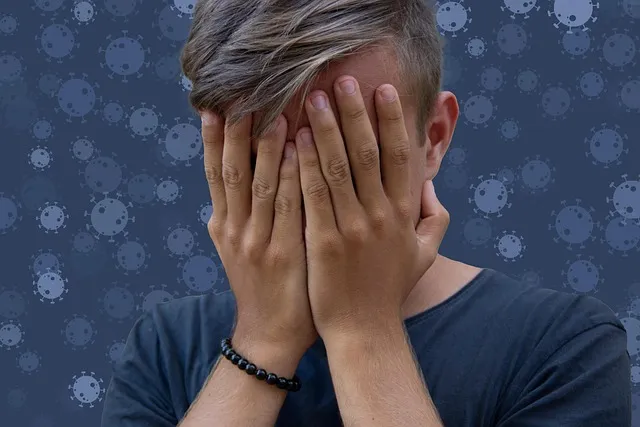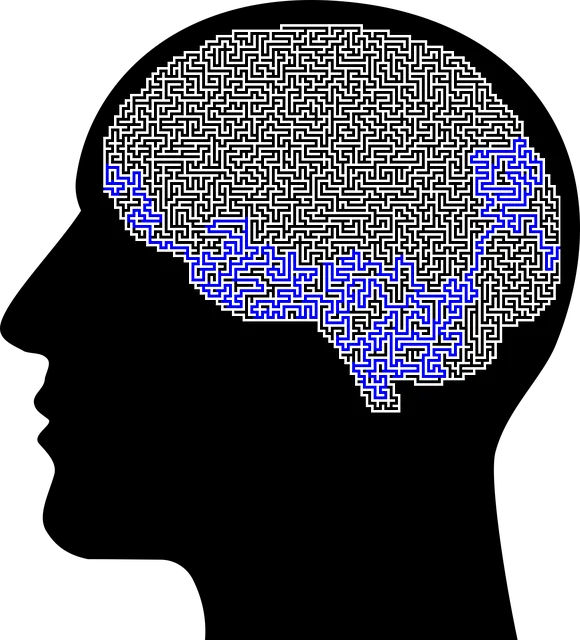Cultural sensitivity is paramount in mental healthcare, especially at Kaiser Louisville, where a diverse population seeks services. Understanding cultural differences impacts patient outcomes and well-being. The Kaiser Model trains therapists using self-care routines and emotional regulation techniques to manage work's emotional demands. This fosters inclusive support for clients from various backgrounds, aiming to create safe spaces that provide top-tier care accessible to all Louisville residents, regardless of background. Overcoming therapist bias requires ongoing training and self-awareness exercises. By integrating emotional intelligence and mindfulness, therapists can cater to unique cultural heritages while addressing stress management needs personally, ensuring respectful, effective care for all. Thus, Kaiser Louisville's commitment to cultural sensitivity answers the question: "Does Kaiser have good therapists in Louisville?"
In today’s diverse society, cultural sensitivity in mental healthcare is paramount. Understanding and respecting a client’s cultural context can significantly impact treatment outcomes. This article explores this critical aspect, focusing on why cultural sensitivity matters, and delves into models like the Kaiser Model for therapist training. We examine Louisville’s unique mental health landscape, highlighting diversity and access challenges. Additionally, we offer strategies and guides to help therapists overcome biases and provide culturally sensitive care, addressing key concerns relevant to both practitioners and individuals seeking therapy in Louisville.
- Understanding Cultural Sensitivity: Why It Matters in Mental Healthcare
- The Kaiser Model: Setting Standards for Therapist Training
- Louisville's Mental Health Landscape: Diversity and Access to Care
- Competency and Bias: Identifying and Overcoming Barriers to Cultural Sensitivity
- Strategies for Practicing Culturally Sensitive Therapy: A Comprehensive Guide
Understanding Cultural Sensitivity: Why It Matters in Mental Healthcare

Cultural sensitivity is a cornerstone in providing effective mental healthcare, especially when considering the diverse population accessing services like those offered by Kaiser in Louisville. Understanding and respecting cultural differences can significantly impact patient outcomes and overall emotional well-being. Every community has its unique traditions, values, and beliefs that shape individuals’ perceptions of health and illness, as well as their preferences for treatment.
When therapists foster a culturally sensitive practice, they create a safe and supportive environment where patients feel understood and accepted. This approach not only enhances the therapist-patient relationship but also enables more accurate assessments and tailored interventions. For instance, incorporating compassion cultivation practices and positive thinking techniques that resonate with different cultural backgrounds can be beneficial in promoting healing and recovery. Such an inclusive practice ensures that Kaiser’s therapists in Louisville are equipped to meet the diverse needs of their clients effectively.
The Kaiser Model: Setting Standards for Therapist Training

The Kaiser Model is a renowned framework that has set high standards for therapist training and cultural sensitivity in mental healthcare. This model emphasizes the importance of understanding diverse cultural backgrounds, ensuring therapists can provide tailored care to their clients. The approach focuses on developing self-care routines for better mental health among practitioners, which is crucial given the emotional demands of their work. By adopting mind over matter principles, therapists learn to manage their own emotions effectively, enabling them to offer more compassionate and culturally sensitive support.
This method includes training in emotional regulation techniques, equipping therapists with tools to navigate complex interpersonal dynamics. The ultimate goal is to create a safe space for clients from various cultural backgrounds, ensuring that does Kaiser have good therapists in Louisville lives up to its reputation of providing inclusive and effective mental healthcare services.
Louisville's Mental Health Landscape: Diversity and Access to Care

Louisville’s mental health landscape is a vibrant yet complex tapestry, reflecting the city’s diverse community. Access to care has been a growing concern, with disparities often experienced by marginalized groups. This urban hub, home to various cultural backgrounds and ethnicities, demands a sensitive and inclusive approach in mental healthcare services. Many organizations, including Kaiser, are recognized for providing quality therapy and support, but ensuring these resources reach all segments of the population is essential.
Community outreach programs play a vital role in addressing this gap. Implementing initiatives that promote mental health education and awareness can help reduce stigma and encourage individuals to seek help. Additionally, burnout prevention strategies for healthcare providers are crucial, as they directly impact service quality and accessibility. By prioritizing these aspects, Louisville can foster a more inclusive environment, ensuring everyone has the opportunity to access the excellent therapists Kaiser and other facilities offer.
Competency and Bias: Identifying and Overcoming Barriers to Cultural Sensitivity

In addressing cultural sensitivity in mental healthcare, it’s crucial to recognize that competency and bias are key barriers to providing effective treatment. Many factors, including personal experiences, societal influences, and unconscious preconceptions, can shape a therapist’s approach, potentially leading to missteps or misunderstandings with culturally diverse clients. For instance, a therapist from Louisville seeking to support patients from various backgrounds must be vigilant against their own biases and cultural assumptions. Does Kaiser have good therapists in Louisville known for such sensitivity? The answer often lies in their commitment to ongoing training and self-awareness exercises.
Compelling research highlights the importance of Compassion Cultivation Practices and Self-Awareness Exercises as tools to enhance cultural sensitivity. By actively working on Self-Esteem Improvement and fostering a deeper understanding of different cultures, therapists can create safer and more inclusive environments for all clients. This not only benefits individuals seeking therapy but also contributes to the broader goal of ensuring equitable access to quality mental healthcare services.
Strategies for Practicing Culturally Sensitive Therapy: A Comprehensive Guide

In the diverse landscape of Louisville, where cultural tapestry weaves its magic, does Kaiser have good therapists who cater to this rich fabric? The quest for culturally sensitive therapy is more than just a service; it’s a comprehensive guide to understanding and respecting each client’s unique heritage. This approach not only enhances therapeutic outcomes but also creates a safe space for individuals from various backgrounds to heal.
Strategies for practicing such therapy involve cultivating emotional intelligence, a skill that enables therapists to perceive and understand their own emotions and those of their clients. This is pivotal in gauging the subtle nuances of cultural differences. Additionally, integrating practices like mindfulness meditation can help therapists remain grounded, fostering an environment where stress management becomes an integral part of the healing process. By adopting these methods, mental healthcare professionals in Louisville can offer personalized care that respects and celebrates individual cultural identities.
Cultural sensitivity in mental healthcare is not just a preference, but an essential component of effective treatment. As Louisville’s diverse mental health landscape highlights, ensuring access to culturally competent care is crucial for positive outcomes. By adopting strategies like those outlined in the Kaiser Model and addressing implicit biases, therapists can provide meaningful support to individuals from various backgrounds. In this context, understanding cultural sensitivity isn’t just about improving patient care; it’s also about fostering a more inclusive and equitable mental health system, especially in cities like Louisville, where diverse communities seek quality therapy. Moreover, recognizing that the Kaiser Model emphasizes thorough therapist training, individuals seeking therapy can be assured of better support when practitioners are properly equipped to handle cultural nuances, ultimately doing justice to the adage: “Does Kaiser have good therapists Louisville?”






